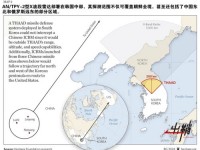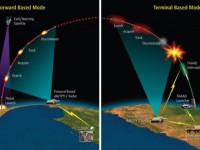Yang Xiyu, Senior Fellow, China Institute of Int'l Studies
Jan 17, 2017
Chaos on the Korean Peninsula would have a direct and far-reaching impact on the security environment of China. China push for the principle of “no war, no chaos and no nuclear weapons” on the Peninsula will become even stronger amid uncertainties posed by the election of Donald Trump and the planned tests by the DPRK.
Darcie Draudt, non-resident James A. Kelly Korean Studies fellow, Pacific Forum CSIS
Nov 30, 2016
The Yellow Sea is an important fisheries resource for China and the two Koreas. However, several violent incidents this season have increased tensions between China and South Korea. With the media and public placing greater scrutiny of the Chinese trawlers, the Korean government has resolved to show stronger resolve against illegal fishing in their waters. For their part, Chinese civilian fishing vessels have become increasingly assertive in response to South Korea’s newfound resolve.
Beth Smits, PhD candidate, Paul H. Nitze School of Advanced International Studies (SAIS), Johns Hopkins University
Nov 30, 2016
China is not the only Asian country looking to the ancient Silk Road as a path to greater economic and political influence. Both Japan and South Korea have their own, albeit more modest, versions of Xi Jinping’s Belt and Road Initiative. While Seoul and Beijing have expressed public interest in collaborating along the Silk Road, Tokyo remains silent. Will the BRI be a driver for greater integration in Northeast Asia, or will these three nations prefer to follow their own paths eastward?
Yin Chengde, Research Fellow, China Foundation for International Studies
Oct 19, 2016
The confrontation regarding plans for the THAAD system might lead to unbearable consequences if the situation gets worse. The only reasonable course for Washington and Seoul is to abandon the deployment.
Liu Junhong, Researcher, Chinese Institute of Contemporary Int'l Relations
Oct 03, 2016
China’s ties with the two US allies continue to evolve, as Beijing develops new consensus with Seoul but finds accommodation with Tokyo more challenging. Domestic politics in the US and Japan may cast a shadow on future progress in China’s bilateral relations with both South Korea and Japan.
Darcie Draudt, non-resident James A. Kelly Korean Studies fellow, Pacific Forum CSIS
Sep 02, 2016
In early July, South Korea decided to allow the United States to deploy the Terminal High-Altitude Area Defense (THAAD) system. At the heart of this issue is the difference in how China and the United States view the role of South Korea and decisions related to the security and stability of the peninsula.

Richard Weitz, Senior Fellow, Hudson Institute
Aug 10, 2016
Following months of assessment by a Joint Working Group, the U.S. Defense Department announced in July that the U.S. Forces Korea Command will station a Terminal High-Altitude Area Defense (THAAD) battery in South Korea “as a defensive measure to ensure the security of the nation and its people, and to protect alliance military forces from North Korea's weapons of mass destruction and ballistic missile threats.”

Fan Gaoyue, Guest Professor at Sichuan University, Former Chief Specialist at PLA Academy of Military Science
Aug 09, 2016
Seoul should fully understand the consequences of THAAD in the ROK, reverse the deployment decision and cooperate with countries concerned in an effort to force the DPRK to abandon its nuclear project and mitigate the tense situation in the Korean Peninsula. THAAD will only produce two winners: the U.S. and the DPRK.
Jul 25, 2016
Chinese Foreign Minister Wang Yi has criticized South Korea's move to deploy an advanced U.S. anti-missile defense system to counter threats from North Korea, saying it harmed the foundation of their mutual trust, news reports said on Monday.
Back to Top

- China-US Focus builds trust and understanding between the U.S. and China through open dialogue among thought leaders.
- Our Offerings
- Topics
- Videos
- Podcasts
- Columnists
- Research Reports
- Focus Digest
- Stay Connected
-
Thanks for signing up!
- Get the latest stories from China-US Focus weekly.